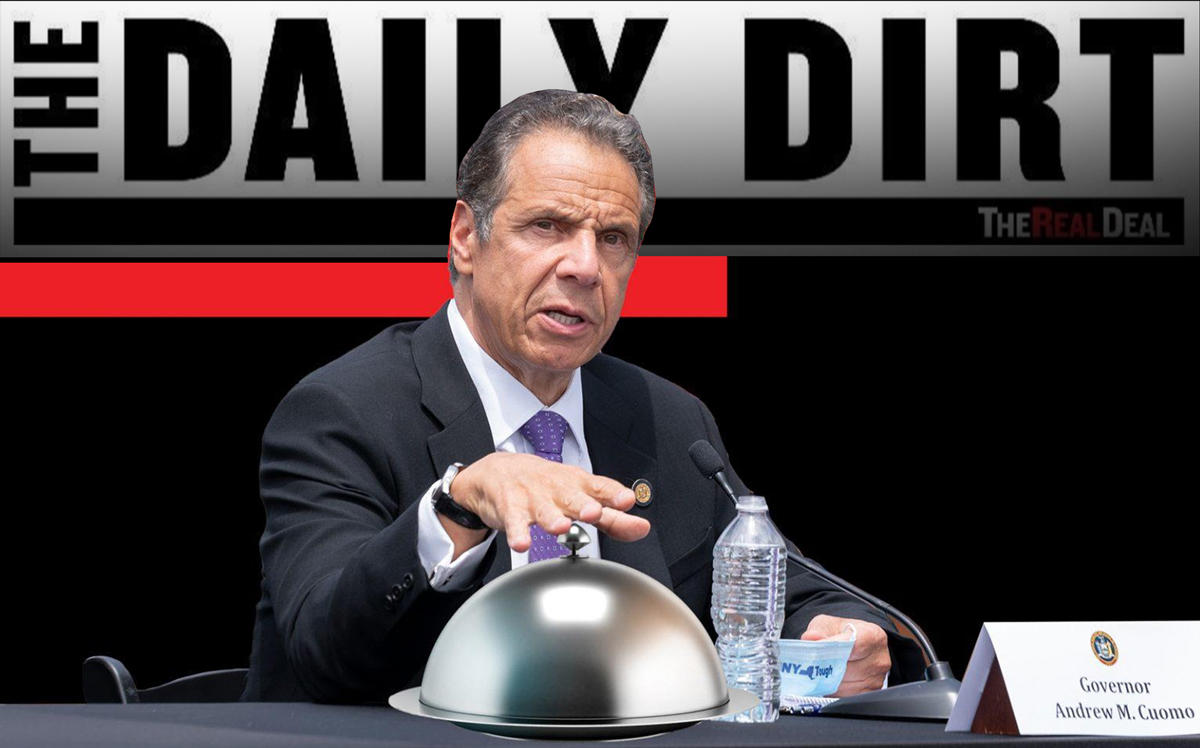Trending
The Daily Dirt: Indoor dining dilemma
An analysis of New York's top real estate news

NYC was on track to resume indoor dining on July 6. Now that looks unlikely.
Gov. Andrew Cuomo said today he would announce Wednesday whether restaurants can start offering indoor dining next week. But he also told NY1 that it could be “problematic” and voiced concern about New Yorkers gathering on sidewalks and participating in protests.
Not only that, but New Jersey, which has been a few days ahead of New York City in terms of reopening, has decided against allowing indoor dining starting Thursday, as had been planned. Gov. Phil Murphy, pointing to upticks in Covid-19 in other states that have reopened, announced that indoor dining will remain suspended indefinitely. It would be surprising if Cuomo — who has advocated for coordination on opening plans between states in the region — decided to move forward with in-restaurant dining in the five boroughs. If he did, he’d run the risk of New Jerseyans swarming the city. And nobody wants that.
This is unwelcome news to restaurants that were already hurting, especially those that haven’t been able to adapt to curbside pickup and outdoor service. The city is trying to free up more space outdoors for restaurants — in addition to sidewalks and curb lanes — by making privately owned public spaces available. Landlords who want to participate have to submit details on changes to their POPS.
WeWork is closing its first location.
A decade ago, Adam Neumann and Miguel McKelvey opened a co-working space at 154 Grand Street. A lot has changed for WeWork since then. Both co-founders have stepped down, and the company is worth a small fraction of its former $47 billion valuation.
The company’s lease at the Grand Street location expires this year, and WeWork plans to close it at the end of July, Rich Bockmann reports.
“In streamlining our portfolio towards profitable growth, we have decided to move on from 154 Grand,” a spokesperson wrote in an email.
What we’re thinking about: How will Lemonade’s initial public offering go? Send a note to kathryn@therealdeal.com.
CLOSING TIME
Residential: The priciest residential closing recorded Monday was for a condo unit at 225 West 86th Street on the Upper West Side, at $6.9 million.
Commercial: The most expensive commercial closing of the day was for two seminary buildings at 92 and 100 Claremont Avenue in Morningside Heights, at $60.7 million.
BREAKING GROUND
The largest new building filing of the day was for a 76,486-square-foot school building at 199 East 135th Street in Mott Haven. South Bronx Charter School for International Cultures & the Arts filed the permit application.
NEW TO THE MARKET
The priciest residential listing to hit the market was for a townhouse — formerly owned by Robert De Niro— at 14 Saint Luke’s Place in the West Village, at $13.5 million. The Corcoran Group has the listing. — Research by Kevin Sun
A thing we’ve learned…
The developers of 46-74 Gansevoort Street — a commercial redevelopment in the Meatpacking District — applied to the city to lift zoning restrictions that barred office use on the property. These zoning restrictions were part of a broader fight over the development, which neighborhood activists said was contextually out of step with the neighborhood’s history. The City Council lifted these restrictions earlier this year, which made Match Group’s lease at the project possible.
Elsewhere in New York
— Some City Council members are not impressed by the mayor’s pledge to reallocate $1 billion from the NYPD’s budget to social services, Gothamist reports. The members say the cuts don’t actually reduce the scope of policing in the city. “This budget deal is not a people’s victory,” said Brooklyn Council member Carlos Menchaca. “It’s a retreat into fear, with accounting gimmicks standing in for the real thing.”
— Two people threw balloons filled with red paint at the two George Washington statues featured on the arch in Washington Square Park, the New York Post reports. Statues of the former president have been defaced in other cities in the country because Washington owned slaves and was responsible for the deaths of Native Americans. Last week, someone painted “slave owner” on a statue of Washington in Union Square Park.
— The mayor announced plans to end the use of solitary confinement at Rikers Island and its other jails, Politico New York reports. To start, the city will ban confinement for prisoners with certain underlying conditions, including heart disease, asthma, diabetes and seizures.




